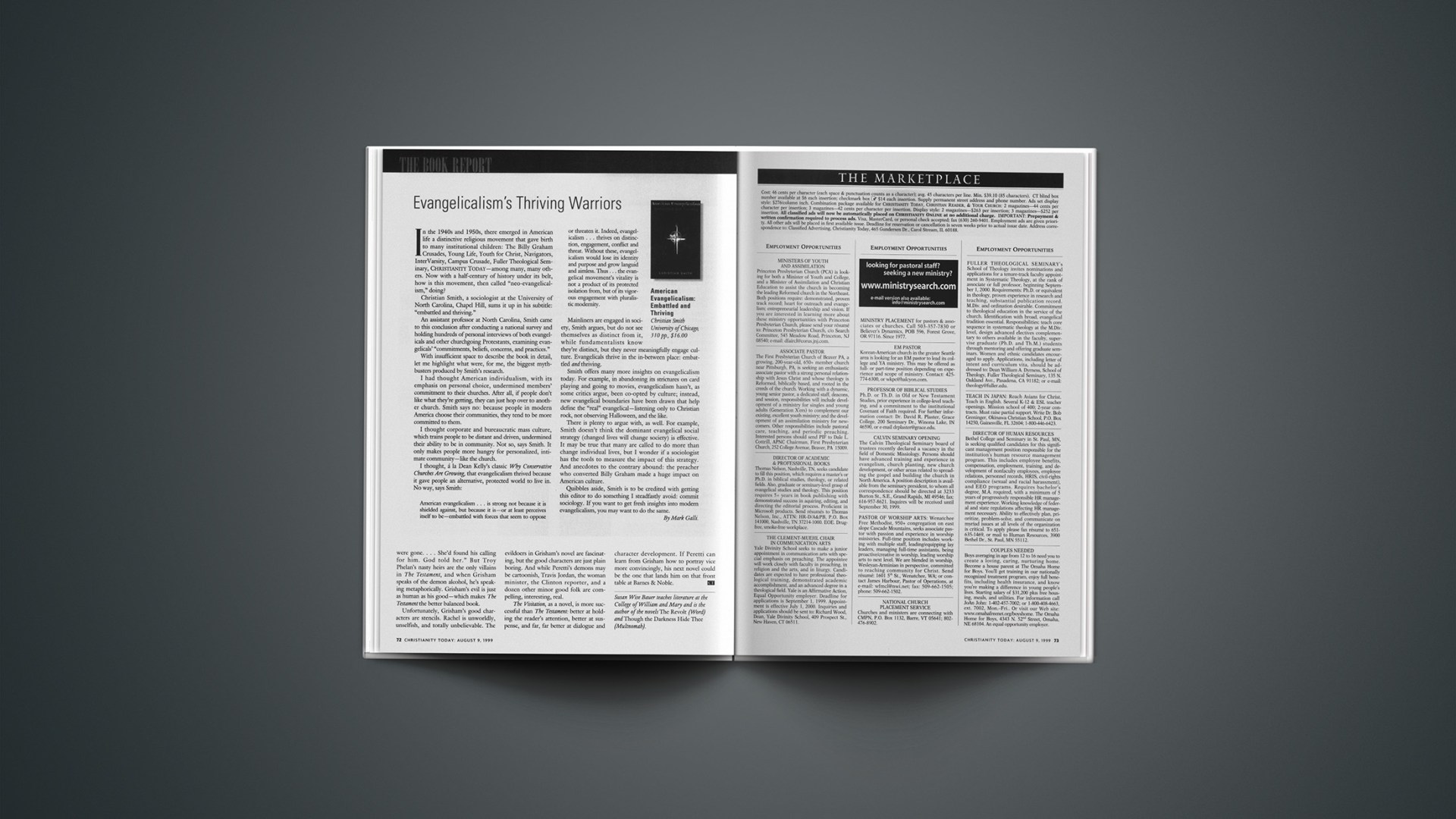American Evangelicalism: Embattled and Thriving
Christian Smith
University of Chicago,
310 pp., $16.00
Christianity Today—among many, many others. Now with a half-century of history under its belt, how is this movement, then called “neo-evangelicalism,” doing?
Christian Smith, a sociologist at the University of North Carolina, Chapel Hill, sums it up in his subtitle: “embattled and thriving.”
An assistant professor at North Carolina, Smith came to this conclusion after conducting a national survey and holding hundreds of personal interviews of both evangelicals and other churchgoing Protestants, examining evangelicals’ “commitments, beliefs, concerns, and practices.”
With insufficient space to describe the book in detail, let me highlight what were, for me, the biggest myth-busters produced by Smith’s research.
I had thought American individualism, with its emphasis on personal choice, undermined members’ commitment to their churches. After all, if people don’t like what they’re getting, they can just hop over to another church. Smith says no: because people in modern America choose their communities, they tend to be more committed to them.
I thought corporate and bureaucratic mass culture, which trains people to be distant and driven, undermined their ability to be in community. Not so, says Smith. It only makes people more hungry for personalized, intimate community—like the church.
I thought, a la Dean Kelly’s classic Why Conservative Churches Are Growing, that evangelicalism thrived because it gave people an alternative, protected world to live in. No way, says Smith:
American evangelicalism … is strong not because it is shielded against, but because it is—or at least perceives itself to be—embattled with forces that seem to oppose or threaten it. Indeed, evangelicalism … thrives on distinction, engagement, conflict and threat. Without these, evangelicalism would lose its identity and purpose and grow languid and aimless. Thus … the evangelical movement’s vitality is not a product of its protected isolation from, but of its vigorous engagement with pluralistic modernity.
Mainliners are engaged in society, Smith argues, but do not see themselves as distinct from it, while fundamentalists know they’re distinct, but they never meaningfully engage culture. Evangelicals thrive in the in-between place: embattled and thriving.
Smith offers many more insights on evangelicalism today. For example, in abandoning its strictures on card playing and going to movies, evangelicalism hasn’t, as some critics argue, been co-opted by culture; instead, new evangelical boundaries have been drawn that help define the “real” evangelical—listening only to Christian rock, not observing Halloween, and the like.
There is plenty to argue with, as well. For example, Smith doesn’t think the dominant evangelical social strategy (changed lives will change society) is effective. It may be true that many are called to do more than change individual lives, but I wonder if a sociologist has the tools to measure the impact of this strategy. And anecdotes to the contrary abound: the preacher who converted Billy Graham made a huge impact on American culture.
Quibbles aside, Smith is to be credited with getting this editor to do something I steadfastly avoid: commit sociology. If you want to get fresh insights into modern evangelicalism, you may want to do the same.
Copyright © 1999 Christianity Today. Click for reprint information.










